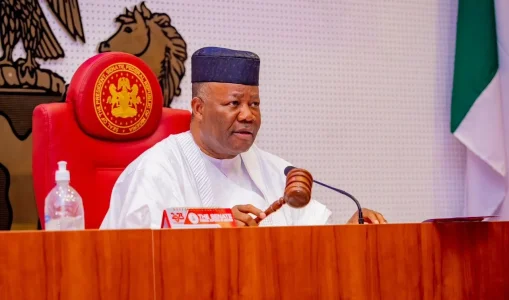
Image by Oluwaseyi Aiyeobasan from Pixabay
In a sobering assessment of Nigeria's financial health, the Federal Government has voiced alarm over the country's escalating public expenditure in the face of diminishing revenue streams. Punch Newspapers reports that the Accountant General of the Federation, Mrs. Oluwatoyin Madein, highlighted these concerns during an interactive session on the 2024-2026 Medium Term Expenditure Framework and Fiscal Strategy Paper hosted by the House of Representatives Committee on Finance.
Mrs. Madein acknowledged a troubling trend of reduced revenue generation compared to the nation's expenditures. She reassured lawmakers that measures are being taken to curb revenue leakages and enhance the inflow of funds into the federation's coffers. These efforts are critical as the country's expenditures continue to rise amidst the current economic climate, where inflation is a persistent issue.
The session also heard from Mr. Armstrong Katang, CEO of the Ministry of Finance Incorporated. The Chairman of the House Committee on Finance, Abiodun Faleke, emphasized the foundational role of the MTEF in shaping the annual budget, which is pivotal for implementing the Federal Government's plans and policies.
Faleke stressed the Committee's dedication to ensuring that government agreements offer value for money. He pointed out the significant revenue reduction, particularly from the oil sector, which has traditionally been Nigeria's primary income source. The Committee has resolved to investigate the causes of these oil revenue shortfalls rigorously.
The implications of these financial challenges are far-reaching for Nigerians and the global community. Nigeria's reliance on foreign loans has led to a debt servicing crisis, with over 95% of the country's revenues in 2022 being allocated to debt repayments. The Federal Government's budgetary constraints have left it with little choice but to continue borrowing, exacerbating the debt situation.
As Nigeria's foreign debt is projected to climb to approximately $51 billion following a presidential request for additional borrowing, the nation's fiscal stability hangs in the balance. This situation affects the Nigerian economy and risks international financial stability, highlighting the importance of prudent fiscal management and transparent governance.
For the world, Nigeria's debt crisis serves as a cautionary tale of the perils of excessive borrowing and the vital need for robust revenue systems to support sustainable development.



